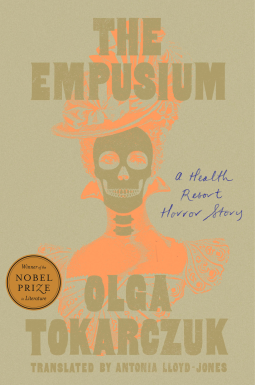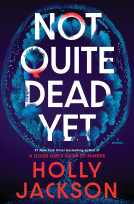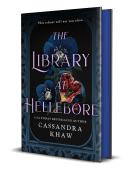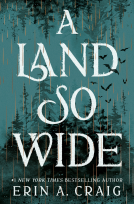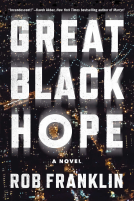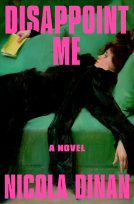The Empusium
A Health Resort Horror Story
by Olga Tokarczuk
You must sign in to see if this title is available for request. Sign In or Register Now
Send NetGalley books directly to your Kindle or Kindle app
1
To read on a Kindle or Kindle app, please add kindle@netgalley.com as an approved email address to receive files in your Amazon account. Click here for step-by-step instructions.
2
Also find your Kindle email address within your Amazon account, and enter it here.
Pub Date Sep 24 2024 | Archive Date Not set
PENGUIN GROUP Riverhead | Riverhead Books
Talking about this book? Use #TheEmpusium #NetGalley. More hashtag tips!
Description
AN INSTANT NATIONAL BESTSELLER!
A NEW YORK TIMES NOTABLE BOOK OF THE YEAR
“A folk horror story with a deceptively light and knowing tone … elegant and genuinely unsettling.” –The New York Times Book Review
The Nobel Prize winner’s latest masterwork, set in a sanitarium on the eve of World War I, probes the horrors that lie beneath our most hallowed ideas
September 1913. A young Pole suffering from tuberculosis arrives at Wilhelm Opitz’s Guesthouse for Gentlemen in the village of Görbersdorf, a health resort in the Silesian mountains. Every evening the residents gather to imbibe the hallucinogenic local liqueur and debate the great issues of the day: Monarchy or democracy? Do devils exist? Are women born inferior? War or peace? Meanwhile, disturbing things are happening in the guesthouse and the surrounding hills. Someone—or something—seems to be watching, attempting to infiltrate this cloistered world. Little does the newcomer realize, as he tries to unravel both the truths within himself and the mystery of the sinister forces beyond, that they have already chosen their next target.
A century after the publication of The Magic Mountain, Olga Tokarczuk revisits Thomas Mann territory and lays claim to it, with signature boldness, inventiveness, humor, and bravura.
A NEW YORK TIMES NOTABLE BOOK OF THE YEAR
“A folk horror story with a deceptively light and knowing tone … elegant and genuinely unsettling.” –The New York Times Book Review
The Nobel Prize winner’s latest masterwork, set in a sanitarium on the eve of World War I, probes the horrors that lie beneath our most hallowed ideas
September 1913. A young Pole suffering from tuberculosis arrives at Wilhelm Opitz’s Guesthouse for Gentlemen in the village of Görbersdorf, a health resort in the Silesian mountains. Every evening the residents gather to imbibe the hallucinogenic local liqueur and debate the great issues of the day: Monarchy or democracy? Do devils exist? Are women born inferior? War or peace? Meanwhile, disturbing things are happening in the guesthouse and the surrounding hills. Someone—or something—seems to be watching, attempting to infiltrate this cloistered world. Little does the newcomer realize, as he tries to unravel both the truths within himself and the mystery of the sinister forces beyond, that they have already chosen their next target.
A century after the publication of The Magic Mountain, Olga Tokarczuk revisits Thomas Mann territory and lays claim to it, with signature boldness, inventiveness, humor, and bravura.
Available Editions
| EDITION | Other Format |
| ISBN | 9780593712948 |
| PRICE | $30.00 (USD) |
| PAGES | 320 |
Available on NetGalley
NetGalley Reader (EPUB)
NetGalley Shelf App (EPUB)
Send to Kindle (EPUB)
Download (EPUB)
Readers who liked this book also liked:
The Heaven & Earth Grocery Store
James McBride
General Fiction (Adult), Historical Fiction, Literary Fiction
James McBride
General Fiction (Adult), Historical Fiction, Literary Fiction
